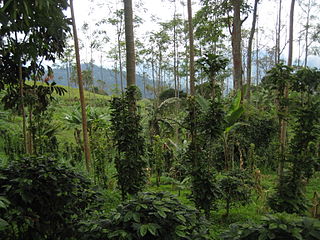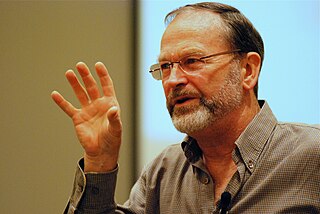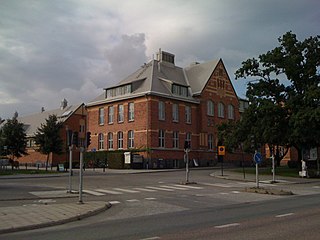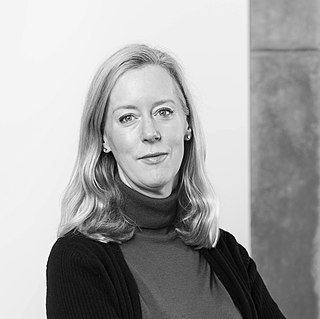
Sustainable agriculture is farming in sustainable ways meeting society's present food and textile needs, without compromising the ability for current or future generations to meet their needs. It can be based on an understanding of ecosystem services. There are many methods to increase the sustainability of agriculture. When developing agriculture within sustainable food systems, it is important to develop flexible business process and farming practices. Agriculture has an enormous environmental footprint, playing a significant role in causing climate change, water scarcity, water pollution, land degradation, deforestation and other processes; it is simultaneously causing environmental changes and being impacted by these changes. Sustainable agriculture consists of environment friendly methods of farming that allow the production of crops or livestock without damage to human or natural systems. It involves preventing adverse effects to soil, water, biodiversity, surrounding or downstream resources—as well as to those working or living on the farm or in neighboring areas. Elements of sustainable agriculture can include permaculture, agroforestry, mixed farming, multiple cropping, and crop rotation.

William Rees, FRSC, is Professor Emeritus at the University of British Columbia and former director of the School of Community and Regional Planning (SCARP) at UBC.
A Master of Research degree is an internationally recognised advanced postgraduate research degree. In most cases, the degree is designed to prepare students for doctoral research. Increasingly, the degree may be useful for students considering careers outside of academia, where high-level research skills are valued but a doctoral qualification is not required.

The Eureka Prizes are awarded annually by the Australian Museum, Sydney, to recognise individuals and organizations who have contributed to science and the understanding of science in Australia. They were founded in 1990 following a suggestion by science journalist Robyn Williams.

Peak phosphorus is a concept to describe the point in time when humanity reaches the maximum global production rate of phosphorus as an industrial and commercial raw material. The term is used in an equivalent way to the better-known term peak oil. The issue was raised as a debate on whether phosphorus shortages might be imminent around 2010, which was largely dismissed after USGS and other organizations increased world estimates on available phosphorus resources, mostly in the form of additional resources in Morocco. However, exact reserve quantities remain uncertain, as do the possible impacts of increased phosphate use on future generations. This is important because rock phosphate is a key ingredient in many inorganic fertilizers. Hence, a shortage in rock phosphate might negatively affect the world's food security.
Colin David Butler is a co-founder of the non-governmental organization BODHI, which has autonomous branches in the United States and Australia. Butler was a professor of public health at the University of Canberra from November 2012 until July 2016. In 2018 he was appointed as an honorary professor at the National Centre for Epidemiology & Population Health at Australian National University,. He is a former senior research fellow in global health at the School of Health and Social Development at Deakin University.
Mathis Wackernagel is a Swiss-born sustainability advocate. He is President of Global Footprint Network, an international sustainability think tank with offices in Oakland, California; Brussels, Belgium, and Geneva, Switzerland. The think-tank is a non-profit that focuses on developing and promoting metrics for sustainability.

Matthew England is a physical oceanographer and climate scientist. He is currently Scientia Professor of Ocean & Climate Dynamics at the University of New South Wales, Sydney, Australia.
Ceridwen Dovey is a South African and Australian social anthropologist and author. In 2009 she was named a 5 under 35 nominee by the National Book Foundation and in 2020 won The Bragg UNSW Press Prize for Science Writing.
Peak minerals marks the point in time when the largest production of a mineral will occur in an area, with production declining in subsequent years. While most mineral resources will not be exhausted in the near future, global extraction and production has become more challenging. Miners have found ways over time to extract deeper and lower grade ores with lower production costs. More than anything else, declining average ore grades are indicative of ongoing technological shifts that have enabled inclusion of more 'complex' processing – in social and environmental terms as well as economic – and structural changes in the minerals exploration industry and these have been accompanied by significant increases in identified Mineral Reserves.

Nayef R. F. Al-Rodhan is a Saudi philosopher, neuroscientist, geostrategist, and author. He is an honorary fellow of St. Antony’s College at Oxford University, Oxford, United Kingdom, and senior fellow and head of the Geneva Centre for Security Policy’s Geopolitics and Global Futures Programme, Switzerland, Senior Research Fellow, Institute of Philosophy, School of Advanced Study, University of London, United Kingdom, and Member of the Global Future Council on Frontier Risks at the World Economic Forum. His research focuses on the interplay between: Analytic Neurophilosophy, Geopolitics, Global Futures, Outer space security, Cultural discourse and synergies, Disruptive technologies, International Relations and Policy.

Veena Sahajwalla is an inventor and Professor of Materials Science in the Faculty of Science at UNSW Australia. She is the Director of the UNSW SM@RT Centre for Sustainable Materials Research and Technology and an Australian Research Council Laureate Fellow.

Sara Dolnicar is a social scientist trained in Austria who researches market segmentation, sustainable tourism, and Airbnb. Since 2013, she has been a Research Professor of Tourism at The University of Queensland in Brisbane, Australia. She has been recognised by the Republic of Slovenia for her research achievements.

The Stockholm Resilience Centre (SRC), is a research centre on resilience and sustainability science at Stockholm University. It is a joint initiative between Stockholm University and the Beijer Institute of Ecological Economics at the Royal Swedish Academy of Sciences.
Melina Georgousakis is the founder of Franklin Women, an Australian organisation for women working in health and medical careers. She won a Eureka Prize in 2021.

Katherine Calvin is an earth scientist at the Joint Global Change Research Institute (JGCRI). She researches human use of global resources using Earth modeling systems at JGCRI under the direction of Pacific Northwest National Laboratory (PNNL) and the University of Maryland. She has contributed to the third US National Climate Assessment as well as two special reports by the Intergovernmental Panel on Climate Change (IPCC).
Professor Alana Mann is a food activist and interdisciplinary scholar researching the power relations between media, governments, institutions and citizens, in the field of food politics. She is co-founder of FoodLab Sydney, a business incubator to address issues around local food insecurity, based on the model pioneered by FoodLab Detroit. Mann is Professor and Head of Discipline (Media) at the University of Tasmania. She led the Department of Media and Communications at University of Sydney and was a key researcher in the Sydney Environment Institute; the Charles Perkins Centre and Sydney Democracy Network; and in 2018 was a visiting scholar at both Harvard's Food Law and Policy Clinic and the Department of Development Sociology at Cornell University. She is author of Food in a Changing Climate (2021), Voice and Participation in Global Food Politics (2019) & Global Activism in Food Politics: Power Shift (2014).

Abhijit Mukherjee is an Indian professor, scientist and currently Professor of Geology and Geophysics and the School of Environmental Science and Engineering of IIT Kharagpur. He has been selected for Shanti Swarup Bhatnagar Prize for Science and Technology in 2020 in the field of Earth Atmosphere Ocean and Planetary Sciences.
Xuemei Bai (白雪梅) is a professor for Urban Environment and Human Ecology at the Australian National University. She was the winner of the 2018 Volvo Environmental Prize, and is an elected fellow of the Academy of the Social Sciences in Australia.

Karen Bakker is a Canadian author, researcher, and entrepreneur known for her work on digital transformation, environmental governance, and sustainability. A Rhodes Scholar with a PhD from Oxford, Bakker is a professor at the University of British Columbia. In 2022-2023 she will be on sabbatical leave at Harvard, as a Harvard Radcliffe Institute Fellow. She is the recipient of numerous awards, including a Guggenheim Fellowship, Stanford University’s Annenberg Fellowship in Communication, Canada’s "Top 40 Under 40", and a Trudeau Foundation Fellowship.











